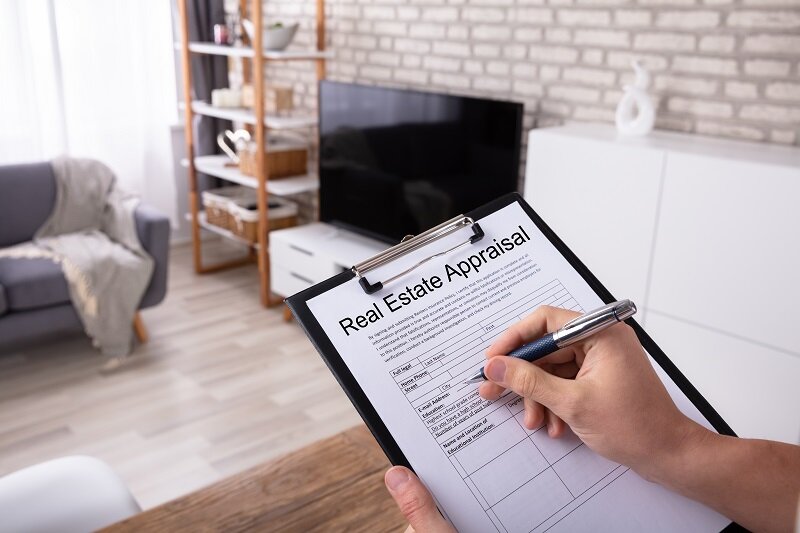
A home appraisal is a vital part of the home buying and selling process. When you’re looking for a new home, an appraisal will often be part of the purchase agreement. The appraisal will give the buyer and seller a better idea of their home’s overall value based on several factors.
Understanding the home appraisal process and some helpful tips on how to make the process run smoothly can ease your stress and get you ready to sell or refinance your home faster and secure VA loans or other financings quickly.
If you’re looking to sell a house fast in Arlington or elsewhere in Texas, look at essential factors surrounding the appraisal process.
Considering Getting Your House Appraised?
There are several reasons why you need to know the home’s value. The most common is that you’re selling or buying your home, but there are other common reasons like:
- Refinancing your mortgage loan
- Insurance purposes
- Property tax assessments
- Estate planning
- Increasing your loan amount
Regardless of why you’re considering getting your house appraised, understanding the process and some helpful tips can help reduce your stress and make the process easier.
Tips When Getting House Appraised
If you’re getting ready to get your home appraised, here are seven tips to help you prepare for the process.
1: Do Your Own Appraisal First
Go ahead and do your own home appraisal first! You’ll want to walk your home inside and out and nitpick it like you would rebuy your own home. Consider any damage that needs repairs, safety equipment that needs updating, and more.
If you find any repairs that need to happen or cosmetic issues, you want to fix them before selling your home. You’ll want to be hard on yourself here because you want to pretend like it’s not your home when you appraise it.
2: Compare Home Values Within Your Neighborhood
To give you a better idea of your home value without considering upgrades, you can compare the home values with other homes on your street and neighborhood. The best thing to do is compare the prices to homes with similar features and updates roughly the same size as yours.
These are called “comps” in real estate, and your appraiser will do this for you, but you are more than welcome to do your own research too. Doing this lets you know where you should focus your time and energy to help increase your property value.
You’ll want to do a thorough market analysis so you have the best understanding of where your home’s value stands next to comparable homes. You can also look at market trends in your neighborhood to determine what upgrades are increasing home values.
3: Deep Clean and Declutter Your Home
Cleaning your home before an appraisal is ideal, but you also don’t want anything that an appraiser might consider “clutter” hanging around. Take the time to deep clean your home and remove as much clutter as possible so they can see how it looks without your personal touches.
4: Declutter and Landscape Your Outdoor Spaces
You don’t want to worry just about the inside of your home. You’ll want to landscape and declutter your outdoor spaces too. Ensuring that your yard is in great condition will likely increase your appraisal value regardless of the season.
You can put away lawn tools, stray toys, and any clutter on your outdoor furniture. This will help increase your curb appeal, which will increase the value of a home.
5: Mention All Your Home Improvement Projects
If you’ve made any home improvements to your home, no matter how small, you should mention those to your appraiser. Whether it’s new features, an updated backyard, a new HVAC unit, interior remodels, or something else, this can help with your appraisal value. Home improvements add value, so you don’t want to leave this information out.
Making a list is the best way to ensure you don’t forget about the home improvement projects and that your appraiser considers them. A short, one-page list is ideal because it’s not overwhelming and still gives them an idea of what to include without bombarding them and telling them how to do their job.
Be sure to include any permits you need for the home improvements to let them know you had professional help and that it’s not faulty work.
6: Know All The Perks of Your Neighborhood
Most appraisers will do their research before visiting your home, but it’s always best to know all the best things about your neighborhood so you can inform them. You’ll note any high-rated schools, transportation stops, parks, local shops, and other amenities that make your neighborhood attractive.
Your appraiser will be local or at least do their research. But you know your neighborhood the best, and it doesn’t hurt to help give them a fuller picture of your house and area.
7: Be Polite
While this might go without saying, you should always be polite throughout the appraisal process. When dealing with your appraiser, avoiding being overbearing and bossy is best. They’re professionals, and they know what they’re doing.
You can have information that you’re ready to share, but sharing it politely and more friendly will get you further than if you didn’t. They welcome any information you want to share, but make sure you let them do their jobs without breathing down their necks.
Valuing Your Property
An appraiser will value your property based on several factors. They’ll consider the area of your home, the square footage, average home values in the neighborhood, features, and more.
The appraisal report will outline how they valued everything about your property and the overall value you can provide to home buyers or your mortgage lender when refinancing.

Making Home Improvements to Add Value
Selling a house that needs work is possible, but you won’t get as high of an appraisal value as you would with a home that has improvements and isn’t a fixer-upper. Home improvements that add more value include:
- Adding an in-ground pool.
- Allowing for more natural light to reach inside.
- An open-concept kitchen.
These are just a few of the ways to make home improvements, but any improvement, no matter how small, can help increase your home value.
Consider Adding New Rooms to Your Home
Adding new rooms to your home is a great way to increase your home’s value. You can add a sunroom, an extra bathroom, or another kind that will benefit your home and appeal to buyers.
If you add new rooms to your home before a home inspection, you’ll want to make sure a professional contractor handles the job and you provide all appropriate permits to complete the work.
When you add more rooms to a home, the market value of your home generally increases as long as the work is done well and the renovations make sense for the home. Adding rooms is ideal for single-family homes on enough land to expand the house easily.
Learn the House Appraisal Process
Understanding the appraisal process can help you feel less stressed when going through it. An appraisal generally protects the lender’s interest, and they’re the ones who will order an appraisal to be done on a home. The borrower, or homeowner, pays the appraisal fees.
Getting an appraisal isn’t very cheap and can cost a few hundred dollars, but it will depend on the location and size of the property. According to the Appraisal Institute, you will always have an impartial and licensed appraiser because federal regulations require it.
Your appraiser should have no interest in whether the home sells and be completely uninvested personally in the property. The appraisal process usually only takes a few hours, but in some rare cases or with larger homes, it can take a few days to complete.
The cost of an appraisal generally comes out of the closing costs of a sale, but it doesn’t always. Your realtor will ensure you know who and how the closing costs will be paid.
Understanding Appeals Process
While in a perfect world, you’ll be satisfied with the appraiser’s value of your home, there are situations where people feel like they need to appeal their appraisal due to a low appraisal. You can dispute your appraisal by going through the appeals process.
Unfortunately, the appeals process isn’t as simple as it could be. Lenders tend to only consider re-appraising if there are findings that the appraised miscalculated heavily and backed by evidence.
In other instances, there can be an appraisal contingency. When this happens, the buyer can negotiate a different sale price with the home seller or walk away without losing any money through the sale. If you’re interested in appealing your appraisal, here’s what you’ll want to look for in the appraisal report:
- Clerical errors (omissions or miscalculations)
- Home improvements not mentioned in the report
- Ensure a real estate agent or real estate appraiser ran comps on similar homes nearby
Conclusion
Getting your house appraised is the first step to selling, buying, or refinancing your mortgage. While you’ll need a professional to handle the official appraisal, you can use the seven tips above to ensure the process goes smoothly and that your home is valued appropriately.
If you’re looking for cash home buyers in Texas, We buy houses Dallas can help. Call us today to learn more about the cash home-buying process so you can start your next chapter faster.
